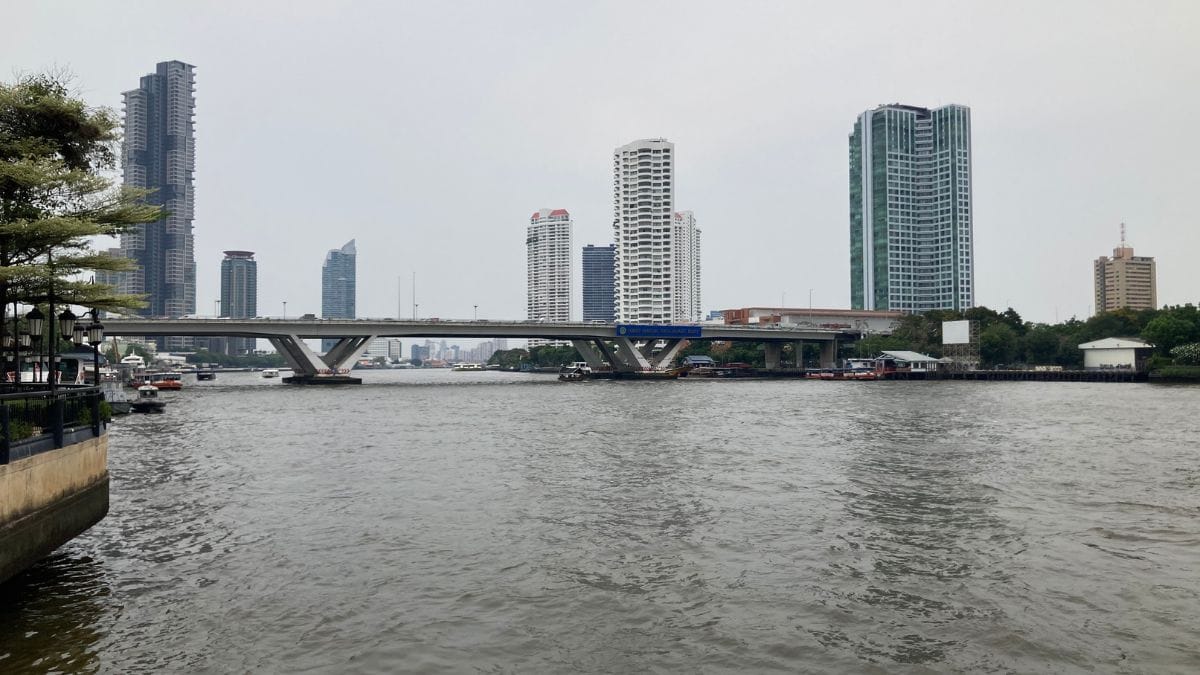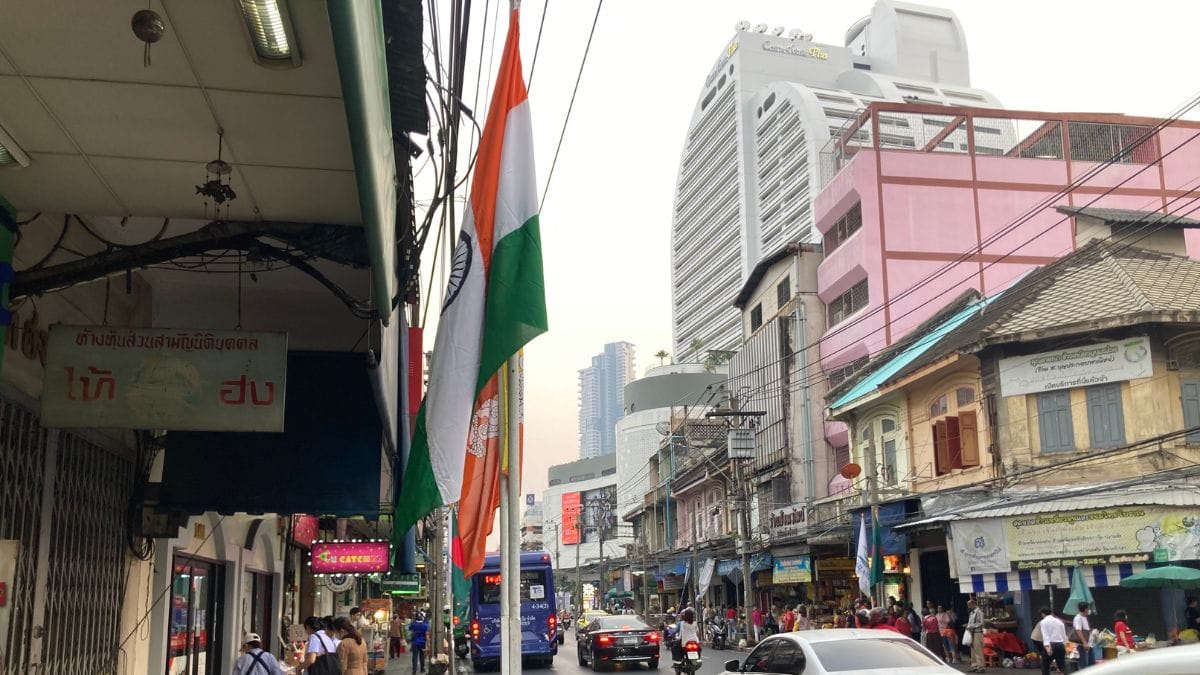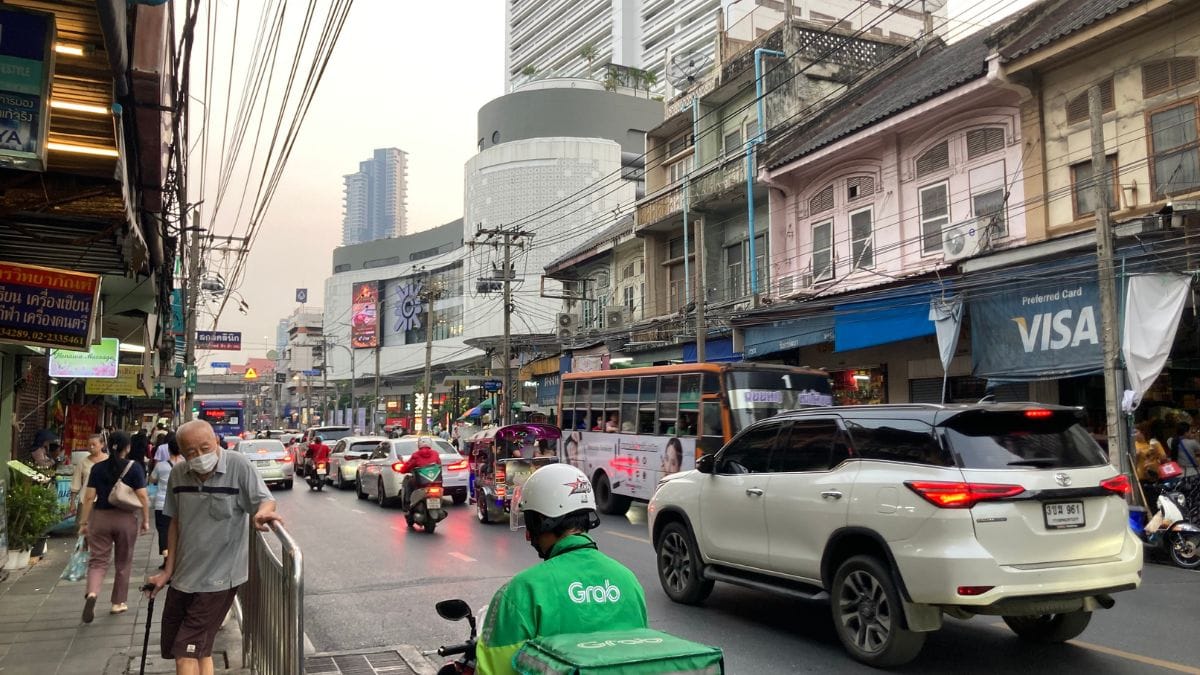Bangkok: As the plane landed in Bangkok, I was looking forward to my first international assignment as a reporter, covering Prime Minister Narendra Modi’s visit to the Thai capital for bilateral meetings with the king and his Thai counterpart and attending the BIMSTEC summit.
The city, with its grey skies, extensive expressways, and skyscrapers in every nook and cranny, however, had no hoardings or signs of an impending regional summit of leaders from six neighbouring countries. In fact, the flight from New Delhi, packed with tourists, a large number of them from the United Kingdom, was seemingly immune from what many in New Delhi would consider a significant summit.
As the taxi went past the terminals in the airport, there was a small section with flags of the BIMSTEC countries—Bangladesh, Bhutan, India, Myanmar, Nepal, Sri Lanka and Thailand—but nothing else of note.
The taxi driver, a kind Thai lady, spoke little English and had little to add as the car zipped through the expressway for my hotel, which was a stone’s throw away from the summit site. This brought to the fore my first challenge: language. For a city that received a reported 26 million tourists last year, I was just one more face amongst a sea of foreigners present in Asia’s foremost sin city.

For all its skyscrapers and economic boom in the last 1980s and 1990s, the city below the expressways is filled with traffic snarls that, at one point, make even New Delhi’s own traffic situation seem less taxing to navigate.
The city, which faced the aftershocks of an earthquake of a 7.7 magnitude that hit Myanmar last Friday, saw an under-construction skyscraper crumble, killing at least 17 workers. However, for all the fear from last week, it seems to have moved on with quiet resilience.
A senior Indian official even remarked privately to me that the effects of the earthquake and videos of the falling tower were far more widely reported in India than over here, to the irritation of those in Thailand.
An unassuming summit in an Asian megapolis
BIMSTEC, which stands for the Bay of Bengal Initiative for Multi-Sectoral Technical and Economic Cooperation—a tongue twister for even the most keen on regional international politics, has over the last 28 years of its existence been one in the background of its own member states. It may explain why the city seems uninterested in the summit.

The last international summit I was a witness to, the G20 in New Delhi, saw the city streets lined with flags and hoardings, and every corner had something related to the summit. While some may argue the scale and scope of the G20 is far larger than BIMSTEC, the difference, to my understanding, is that one (the G20) is an informal meeting of the world’s top leaders, while the other (BIMSTEC) is a regional grouping with a charter, an “international personality” (as I have oft been reminded) and significant for its member-states.
However, officials involved in the summit and PM Modi’s visit in New Delhi and Bangkok assure me that the BIMSTEC Summit will be a “momentous” one, finally underlining the importance of the regional organisation and institutionalising its various parts. It seems BIMSTEC’s moment has finally arrived, at least within the bureaucracies of its members.
As I walked the narrow streets in Bang Rak (which a local journalist confirmed means an “area or village of love”), near the riverside, where the summit is to be held, there were some signs of the impending summit. The flags of the seven member states fluttered near no parking signs, hidden amongst the crowded street, filled with gentrified cafes, small corner stores and the odd street vendor hawking iced fruits.
The first day of my visit (1 April) saw the streets outside Hotel Shangri-La (the site of the summit) continue as if it were a normal day. Some police started to arrive at around five in the evening to manage the traffic as the leaders started to arrive in Bangkok.
However, the streets next to the hotel, including the Ma Bang Rak food street, continued with seemingly no restrictions. As an Indian reporter, that is odd to witness, given the closure of roads I am quite used to, especially outside my office, as a foreign leader travels to the Raj Ghat.

On the second day of my visit, there seemed to finally be more police presence around the hotel, with officers stopping vehicles from plying on the narrow roads leading to the Shangri-La as the leaders and delegations arrived at the site.
The one common thing on both days of my visit to Bangkok so far, however, is the unbelievable traffic in the city. A cab ride in the rain from my hotel, about 400 metres away to the summit site, took 45 minutes, which may be an exception; however, as I have come to learn, it is slowly becoming the norm.
(Edited by Sanya Mathur)
Also Read: Delhi to Dhaka: My days in post-Hasina Bangladesh

